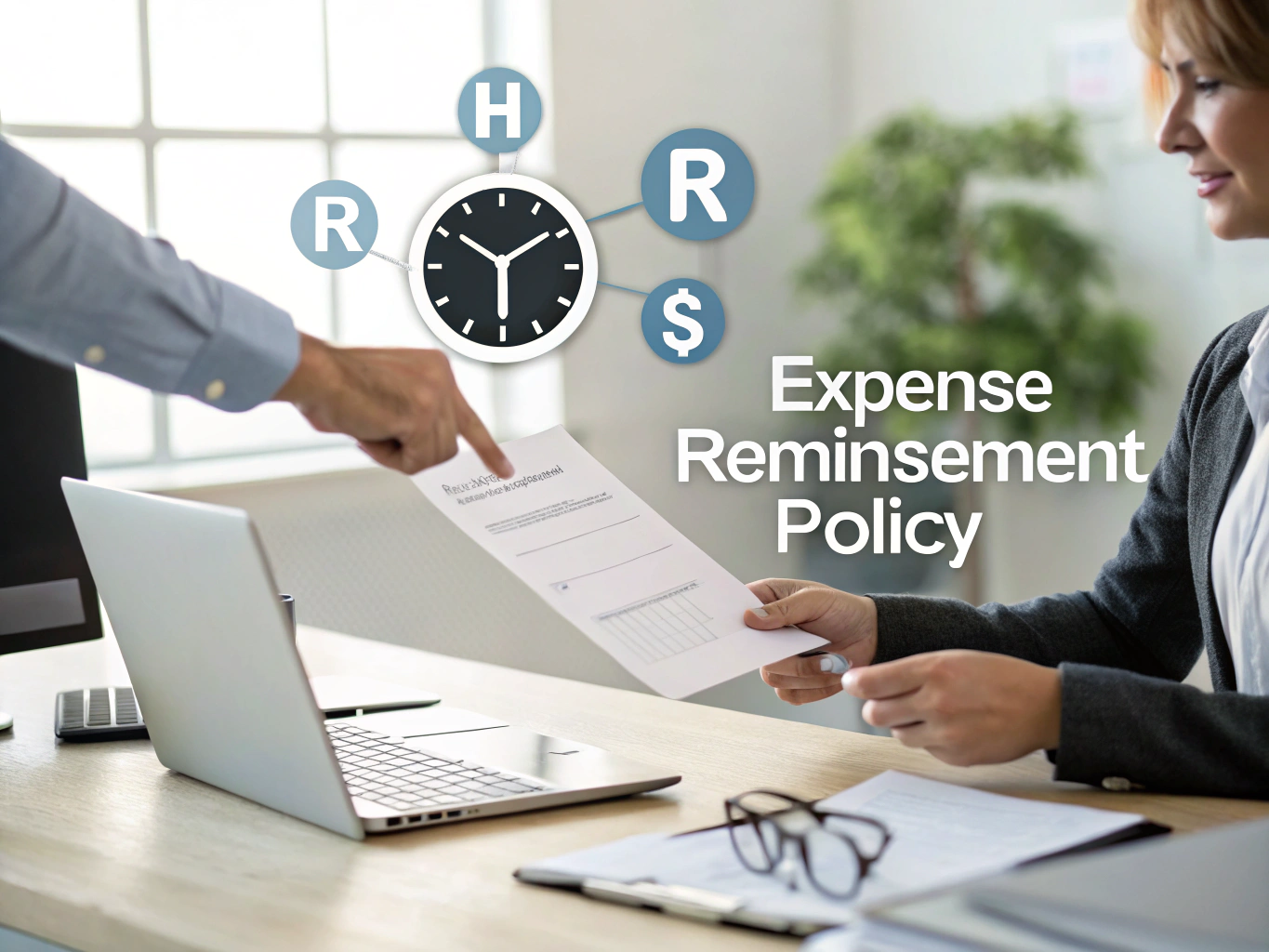Definition
An Expense Reimbursement Policy is a set of guidelines that outlines how employees can claim back money spent on business-related expenses. It ensures a clear process for submitting requests, promoting fairness and transparency while helping your company manage its finances effectively.
Key Components
This policy covers several crucial elements that help streamline the reimbursement process while ensuring compliance. Understanding these components will make it easier for you to navigate the reimbursement landscape.
- Eligible Expenses: This section defines what qualifies for reimbursement. Generally, expenses that are necessary and directly related to your job duties, such as travel, meals during business trips, or office supplies, are eligible. For example, if you attend a conference, the fees for registration and accommodation are typically reimbursable.
- Submission of Expense Reports: Employees need to submit detailed expense reports within a specified timeframe—often within 30 days of incurring the expense. Your report should include itemized receipts and any relevant documentation. For instance, if you buy a meal for a client, attach the receipt and note the purpose of the meeting.
- Approval Process: Before reimbursement can be processed, your supervisor or manager needs to approve your expense report. This step ensures that all claims are justified and compliant with company policies. Think of this as a safety net to prevent any unauthorized claims.
- Non-reimbursable Expenses: Certain expenditures, like personal expenses, fines, or gifts, are not eligible for reimbursement. Familiarizing yourself with this list can save you time and avoid any awkward conversations with your manager later.
- Compliance and Auditing: The company may periodically review expense reports to ensure adherence to the policy. If discrepancies are found, it could lead to disciplinary actions. Staying compliant not only protects you but also strengthens the company’s financial integrity.
Importance in the Workplace
An Expense Reimbursement Policy is vital for maintaining financial discipline within your organization. Imagine a situation where employees claim excessive amounts for meals or travel; without a solid policy, this could lead to significant financial losses. A clear policy helps prevent misuse while ensuring employees feel valued and fairly compensated for their legitimate business expenses. For instance, if you travel for work and have a straightforward process for reimbursement, you’re more likely to focus on your tasks rather than worry about getting your money back.
Best Practices
Implementing an effective Expense Reimbursement Policy requires a thoughtful approach. Here are some best practices to help you get started:
- Communicate Clearly: Make sure all employees understand the policy. Consider hosting a workshop or creating a detailed FAQ document. This will help avoid confusion and ensure everyone is on the same page.
- Use Technology: Consider using expense management software that simplifies the submission and approval process. Digital solutions can speed up reimbursement times and reduce paperwork. For example, apps like Expensify or Concur can make tracking expenses a breeze.
- Regularly Review the Policy: Policies should evolve as your company does. Schedule regular reviews to ensure your policy remains compliant and meets the needs of your employees. This could involve gathering feedback from employees about the policy’s effectiveness.
- Educate on Non-reimbursable Expenses: Clearly outline what expenses will not be reimbursed to prevent misunderstandings. This can save time and resources in the long run.
- Encourage Accountability: Foster a culture of responsibility by encouraging employees to keep their expense reporting honest and timely. This can be promoted through recognition programs for those who consistently follow the guidelines.
Legal Considerations
When crafting your Expense Reimbursement Policy, keep in mind that it must comply with local, state, and federal laws. For example, certain jurisdictions may have specific regulations regarding meal allowances or travel reimbursements. It’s essential to ensure that your policy doesn’t inadvertently violate any labor laws or tax regulations. Consulting with a legal expert or HR professional can help you navigate these complexities and tailor the policy to your needs.
Conclusion
Understanding and implementing an Expense Reimbursement Policy is crucial for fostering a transparent and efficient workplace. It not only safeguards your company’s resources but also builds trust and accountability among employees. By having a clear and concise policy in place, you ensure that everyone knows their rights and responsibilities regarding expense claims, which ultimately leads to a more harmonious work environment. So, take the time to craft a policy that works for both your team and your organization, and watch how it enhances your overall workplace culture.




